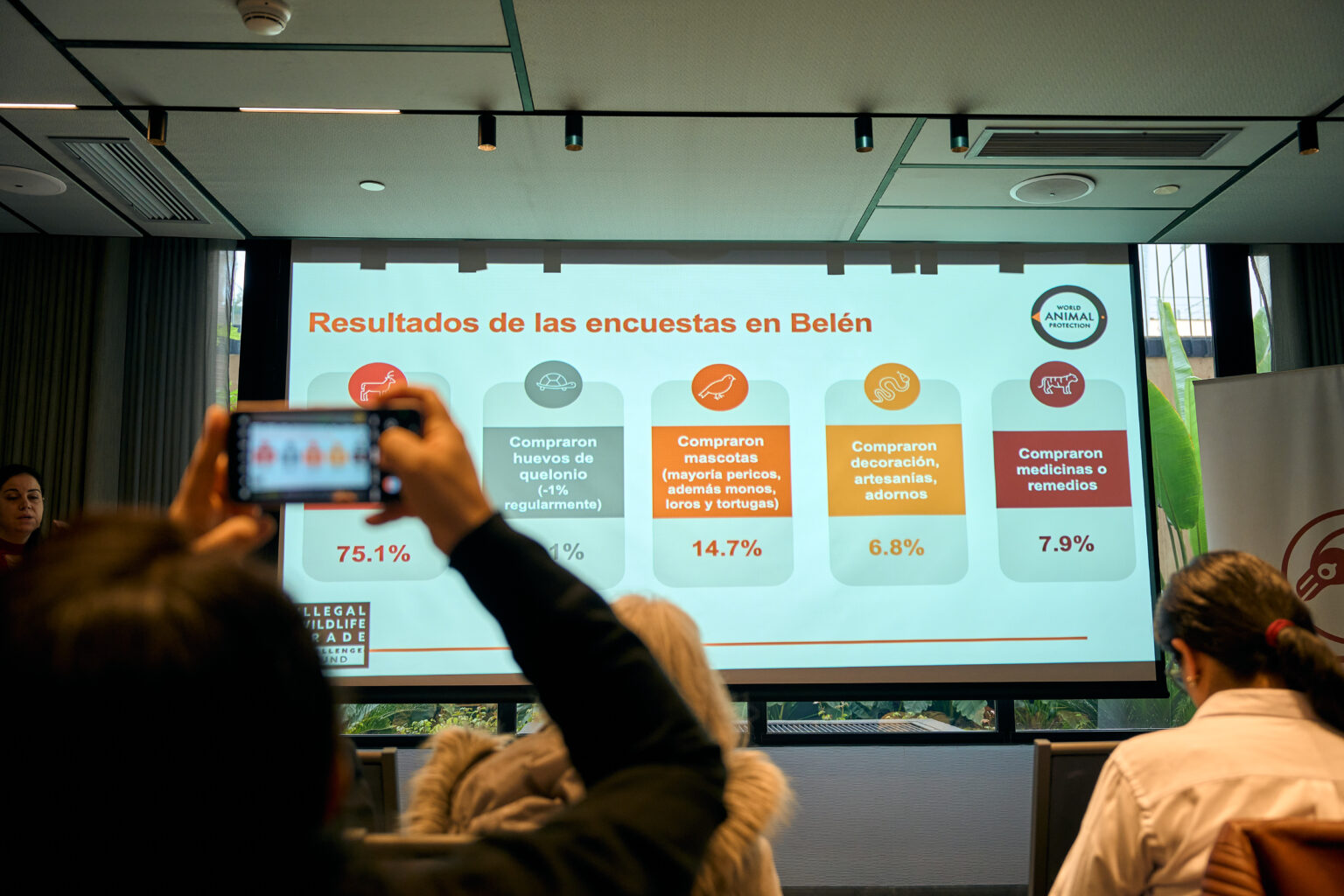Peru: Project generates evidence for wildlife trafficking reduction efforts
The results of the project, carried out by World Animal Protection in collaboration with SPDA, were made possible thanks to the participation of vendors in the Belen market, wildlife consumers, the private sector and the local government.

In early July, the results of the project “Building evidence to reduce the demand for wildlife products in Peru” were presented in the cities of Iquitos and Lima. The project has generated the evidence needed to inform decision-making on specific strategies to reduce illegal wildlife trade. These results are possible thanks to the participation of market vendors in Belén, wildlife consumers, the private sector and local government.
Belén, located in Iquitos, is the largest and most important open wildlife market in the Peruvian Amazon, serving a population of 400,000 people. More than 200 species are known to be traded at the Belén market, 9% of which are endangered and 35% of which have declining wild populations. Wild animals such as jaguars, primates, sloths, river dolphins, turtles, macaws, and snakes have been found for sale at the market. The animals are sold primarily as bushmeat, but also as luxury pets and for spiritual, medicinal and decorative purposes.
 Eugenia Morales, project coordinator for World Animal Protection. Photo: Ángela Rodriguez / SPDA
Eugenia Morales, project coordinator for World Animal Protection. Photo: Ángela Rodriguez / SPDA
What are the results?
The study found that 77% of urban wildlife consumers surveyed had purchased Amazon wildlife products. Similarly, wildlife meat, wildlife pets and body parts are widely available in the Belen market.
But in the midst of these challenges, change is possible. The research found that messages aimed at informing and changing attitudes could be a crucial, yet underutilized, tool to combat this trade and protect biodiversity.
The project was able to contact more than 2,500 urban consumers and more than 150 market vendors to learn what drives the illegal wildlife trade and assess their ability or willingness to adopt wildlife-friendly alternatives.
Similarly, the Loreto Regional Government’s “Cuida tu fauna” initiative has worked with the private sector to adopt a “zero tolerance” stance on illegal wildlife trade, recognizing the key role that businesses, including the hotel and transportation sectors, can play in combating this type of illegal trade.
“This is an innovative project that provides evidence to change behavior and reduce illegal wildlife trade in Bethlehem. The illegal market trade in wildlife poses a significant threat to the conservation of the Amazon’s unique wildlife, compounded by cruel animal welfare conditions that increase the risk of zoonotic disease outbreaks such as COVID-19, SARS and avian influenza“, said Dr. Neil D’Cruze, Head of Wildlife Research and Project Leader for World Animal Protection.
“The project has focused on the Bethlehem market in terms of analyzing its sustainability, its relationship with the livelihoods of local communities, and of course, the conservation of species that are suffering or facing extinction without a rapid response”, said Jose Luis Capella, SPDA’s Forests and Ecosystem Services Program Manager.
“Thanks to the interventions, we have been able to better understand the dynamics of consumption and reach commitments with consumers, vendors and the private sector. It is now essential to coordinate efforts to develop a new strategy and act on the evidence to protect endangered species and the well-being of the region’s most vulnerable communities”, he added.
Fact:
- The “Building Evidence to Reduce Demand for Wildlife Products in Peru” project was supported by the Peruvian government and funded by the UK government through its Illegal Wildlife Trade Challenge Fund. The project was implemented by World Animal Protection in collaboration with the Peruvian Society for Environmental Law (SPDA).